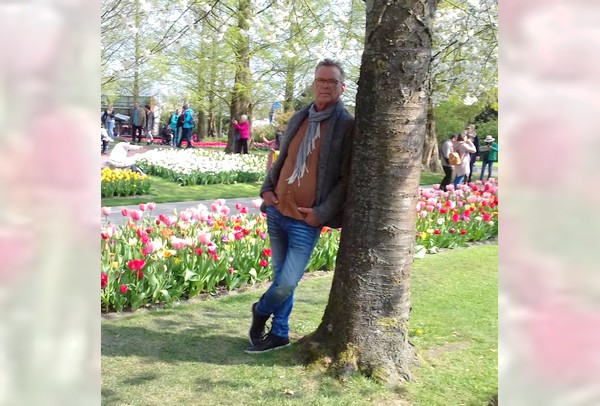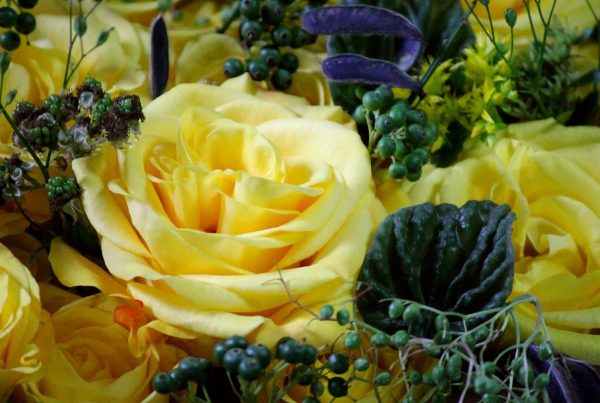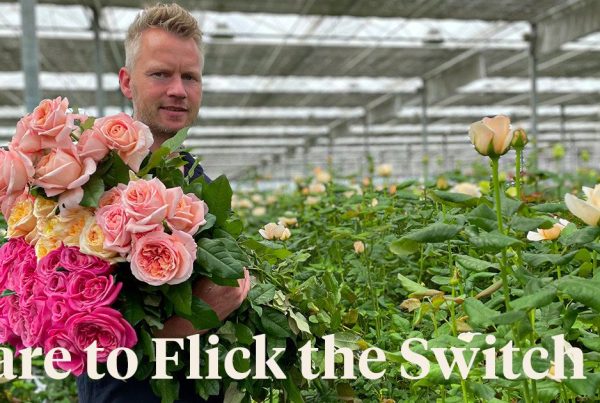After working with roses for more than half a century and 45 years of service at Royal de Ruiter, Piet Maas retired yesterday. He started at the age of twelve, picking roses at a grower for 50 cents an hour (’60 cents if you did it properly’), he graduated as a rose expert, and for many years, he has been one of the faces at the novelties of De Ruiter.
Piet went to a technical school and stayed with a grower. “I could do a lot of hours, which I really liked”, he says. “In March ’76, I started at Anton Pouw, who grew Sonia’s, one of the most popular roses at that time. He was a large grower with his 6.5 ha company. At that time, no lighting was used and the crop was planted in the ground. Particularly in the summertime, we did long days, as we started bunching the flowers at 5 am and then moved on to harvesting. We often stayed till about 9 pm. But all in all, we made good money, as roses were a very profitable crop, and we laughed a lot.”
From production to breeding
In the 80s, Pouw started to cooperate with De Ruiter. The grower planted Madelon first, a red rose that became very popular. They were satisfied with the cooperation and a show greenhouse was opened at the nursery, where several codes of De Ruiter were tested. “I started to take care of the roses in this greenhouse”, he continues.
“Regarding the crop, Pouw shifted slightly from roses to potted plants. In 1989, De Ruiter was taken over and Pouw continued expanding. The combination of Pouw and De Ruiter became a successful one in the rose industry. One of the best sellers at that time was First Red, more or less the successor of Madelon, a good variety that has been planted a lot next to the popular varieties like Vivaldi and Prophyta.”
In the years that followed, they moved to different locations, ending up at the Meerlandenweg in Amstelveen, where the company is still based. Also, Piet moved and over the last six, seven years, he worked at the location in Amstelveen where he, together with his colleagues Marco Carels and Arjen Vlasman, took care of (the presentation of) the new varieties of De Ruiter.
Happy at work
“I always worked in good harmony with everyone”, Piet says. “I always went to work with a smile on my face. Of course, the work has changed completely. There used to be many more growers, and you saw them much more often. There used to be more options, both for better and for worse. The production itself has become much more professional (‘you worked with the natural light, it’s amazing, you can hardly imagine that now’), the roses themselves have become much stronger in terms of quality, production is now much higher and the varieties above all have much larger buds.”
The farewell is not quite as Pete envisioned it. Because of nerve pain and an operation on his back he already had to stop working in March. Now the pain is gone there, but it’s coming back in other places. “That’s still a struggle, hopefully they’ll find what it is soon. Now I can walk or cycle a few meters and have to sit down again. Once that’s sorted out,” he concludes optimistically, “I’ll still come for a cup of coffee, of course, and above all, I hope to be able to enjoy myself for a long time to come and to go out with my wife and our grandchild.”




